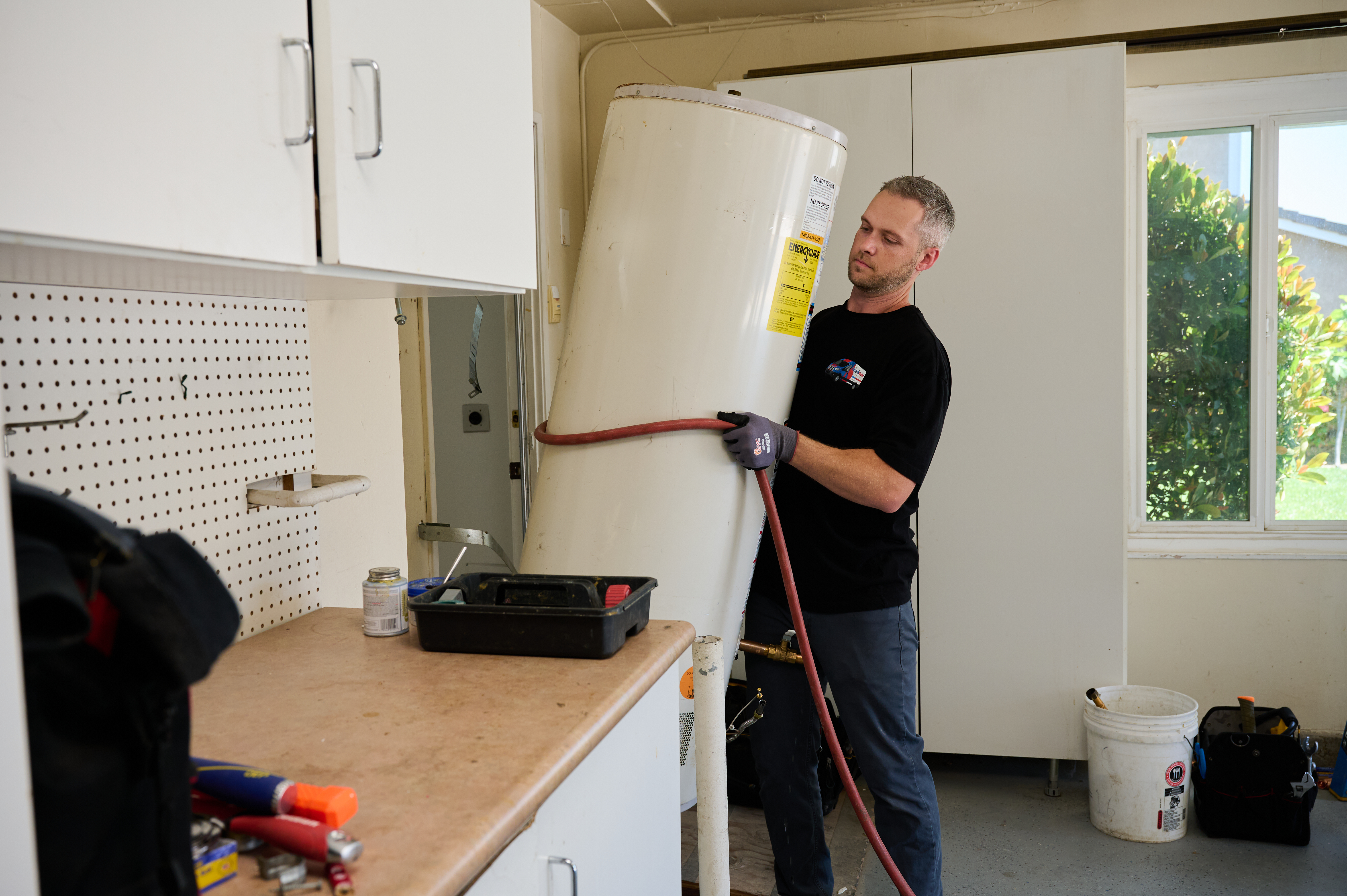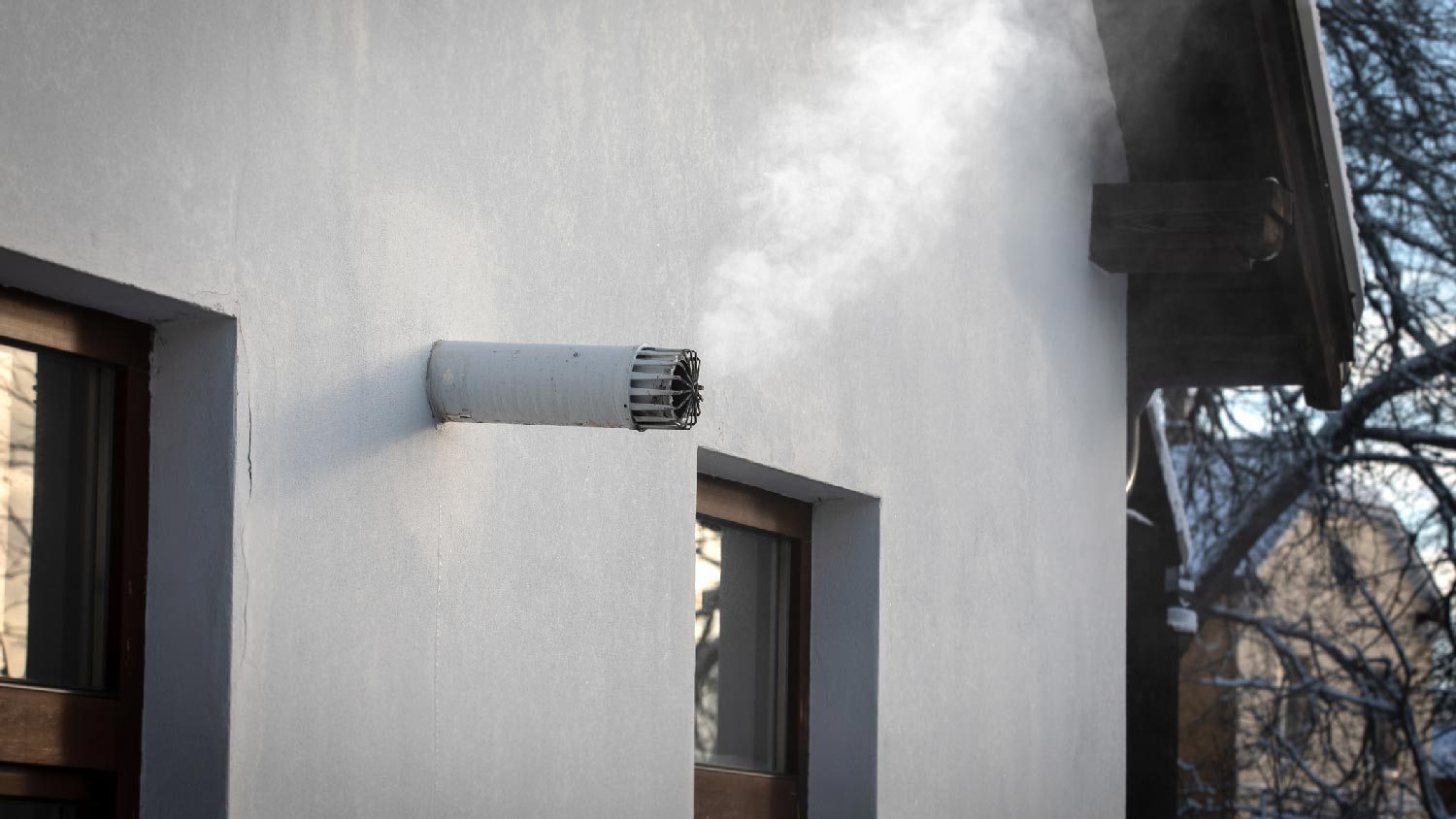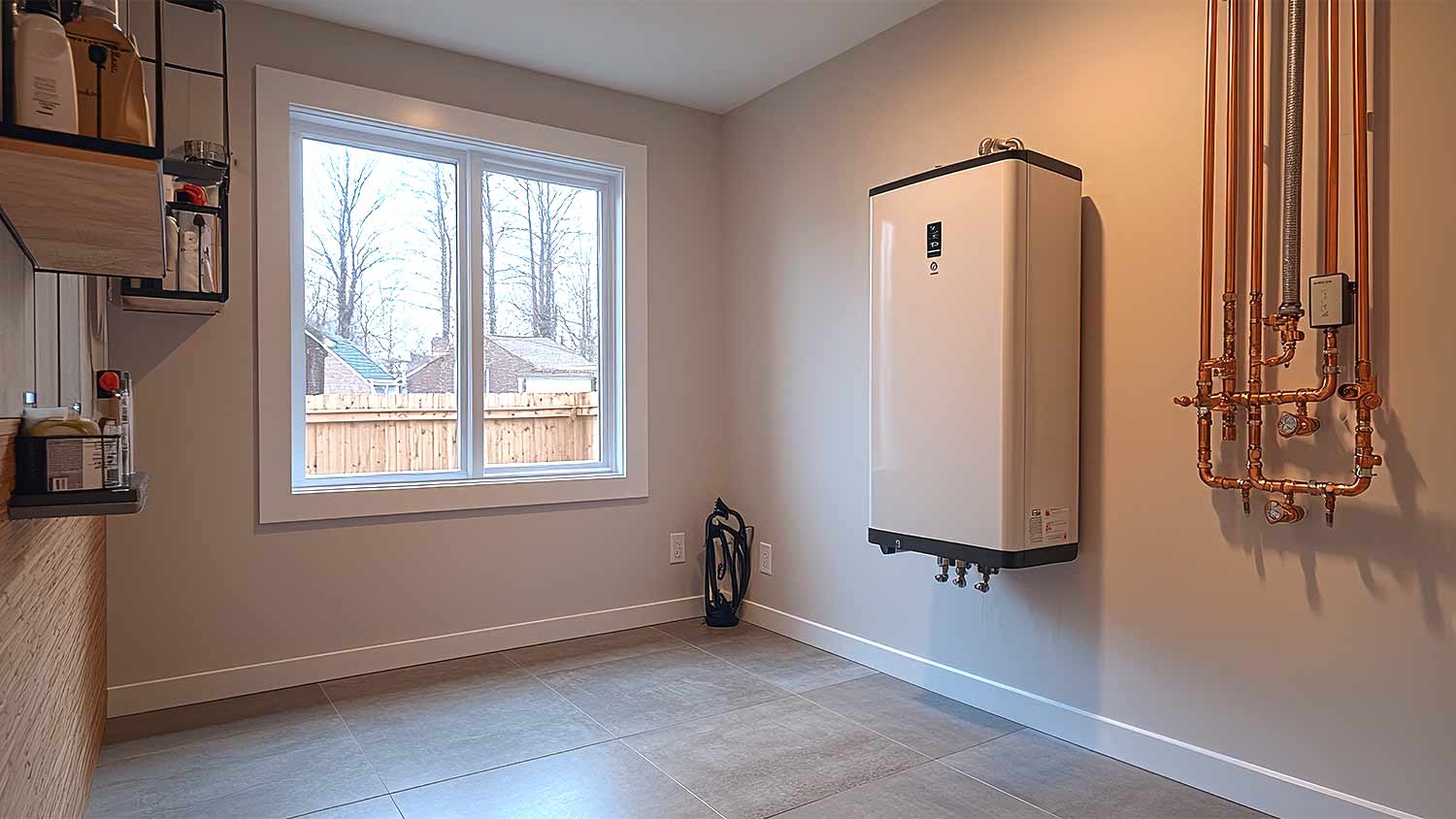
Looking to replace or upgrade your water heater? Use this water heater replacement cost guide to see what the work will cost and what factors affect your total.
Skip the vent for an easy installation


Electric water heaters do not need a venting system.
They do not use combustible fuel, negating the need for venting.
If you have an old, unused vent from a gas water heater, cap it.
When you’re deciding whether to install a gas versus electric water heater, venting is a key consideration. So, do electric water heaters need to be vented? The good news is that they do not need venting, which can simplify their installation. Learn more about water heater venting requirements when installing a new unit.
Water heater installation code requirements do not require venting for an all-electric appliance, whether it’s a traditional model with a tank or a tankless electric water heater.
Gas water heaters need vent pipes to remove dangerous exhaust gases generated during the combustion process (primarily carbon monoxide). Electric models do not generate carbon monoxide, which is a poisonous gas.
To prevent carbon monoxide exposure from a water heater, make sure it is properly ventilated. You should also have it inspected and cleaned every year and install a carbon monoxide detector nearby. If you smell gas—which can mimic the scent of rotten eggs—evacuate immediately and call your gas company.
Although not needing a vent simplifies the installation of an electric model compared to a gas model, installing electric water heaters sometimes requires a few extra steps that can be challenging.
New breaker: Typically, an electric water heater requires a 30-amp, double-pole breaker. If your electrical panel doesn’t have an open breaker like this, you’ll need to install one.
Dedicated circuit: Most electric water heaters need a dedicated circuit that can support 240 volts.
Grounding: It’s essential to properly ground the wiring on the water heater because you’re using a 240-volt circuit. The circuit’s ground wire can connect to a ground lead or ground screw on the water heater appliance.
Wiring skills: Most electric water heaters must be hardwired in place rather than plugged into an electrical outlet. This can be challenging for homeowners to do properly.
Tankless water heaters: You may need to add a large breaker to your electrical panel for a new electric tankless water heater. These appliances can require a 120-amp breaker, which is not a common breaker size.
Natural gas, propane, and oil-fired water heaters do need venting. They all use a combustion process to burn fuel that heats the water. When you have a tank or tankless model that uses gas or propane, you need venting.
To install a venting system, you must place the vent pipe through a wall or roof, allowing it to expel the exhaust gases outdoors. Installing a vent pipe can involve cutting through walls, floors, and roofing materials. Local gas water heater installers can install the venting system for you.

If you’re switching from a gas water heater to an electric model, you may wonder what to do if you have a vent from an old gas appliance in place. If you find yourself in this situation, you should cap, seal, or remove the old vent, or it could fall into disrepair and allow moisture or rodents to enter your home.
If you want help capping the vent, you can hire someone who fixes water heaters—like a local water heater repair professional.
From average costs to expert advice, get all the answers you need to get your job done.

Looking to replace or upgrade your water heater? Use this water heater replacement cost guide to see what the work will cost and what factors affect your total.

Wondering how much a water heater expansion tank costs? Use this cost guide to get an accurate estimate and learn how to choose the right one for your home.

A water heater flush costs $160 on average but can vary based on the unit size, type, labor, location, and more. Keep reading to learn how much you could pay.

Are you having a lot of water heater problems? Our guide highlights the most common issues and how to solve them.

What size water heater you need depends on the number of people in your household and how much water you use. Keep reading to learn about water heater sizing.

Are you ready to replace your home's water heater? Learn how to replace a gas water heater and whether it's best to DIY or call a pro.